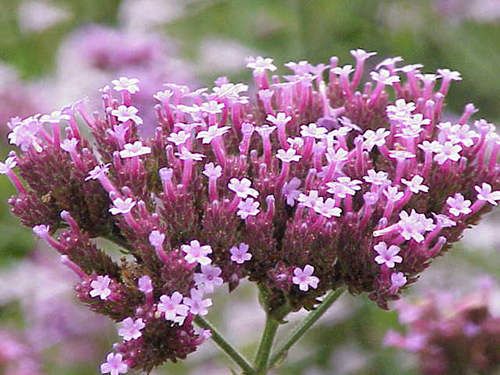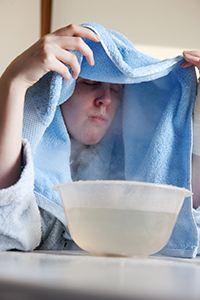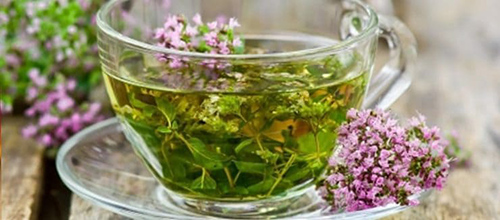Contents
Vervain plant benefits can be traced back to the ancient Greeks and the temple of Zeus on Mount Olympus, which was said to have been purified with valerian water since this plant was thought to be a panacea, able to deliver from all evils. During the Middle Ages, it was used by sorcerers and fortune-tellers as a magic herb. In ancient times, it was recommended as an aphrodisiac (“lights the candles”), which is likely to be so. At present, we have learned about its actual properties and applications.

Healing Properties and Indications
The plant contains verbenalin, a glycoside that acts on the autoimmune nervous system, especially the parasympathetic system, producing sedative, antispasmodic, analgesic, digestive, and anti-inflammatory actions. Besides, it contains tannin and mucilage, which make it an astringent and an emollient. Thus, its applications are:
- Migraines. Due to its antispasmodic action on the arterial system, it prevents migraine crises or at least diminishes their intensity. Treating this ailment is tricky, and better results are obtained when vervain is combined with other plants. Unlike ergotamine-derived medicines, which are usually employed to treat migraine crises and have significant side effects, vervain does not.
- Rheumatic pain, neuralgia, sciatica. It is applied internally (infusion or decoction) and externally (compresses or poultices).
- Digestive dysfunctions. Its eupeptic action promotes digestion. Due to its astringent properties, the plant may be used for diarrhea and intestinal colics.
- Relief of liver congestion. Since it promotes bile secretion (choleretic action), it is recommended for liver dysfunctions. Its antispasmodic action also renders good results for liver stones.
- Diuretic. Being mildly diuretic, it is administered for kidney stones to ease pain and help eliminate stones. The same applies to the treatment of obesity and cellulitis.
- Throat afflictions. It is highly recommended for various throat ailments such as pharyngitis, laryngitis, and tonsilitis, and generally for sore throat, applied in poultices and taken in an infusion.
- Sinusitis. The vervain plant’s anti-inflammatory and astringent properties benefit from treating this distressful condition. It is taken orally, inhaled, and applied in warm compresses on the face.
Vervain Plant Scientific Facts

- Other names: European vervain, enchanter’s plant, herb of the cross, holy herb, Juno’s tears, pigeon’s grass, pigeonweed, simpler’s joy.
- French: Verveine, herbe sacree.
- Spanish: Verbena, curalotodo, hierba santa.
- Environment: Common on roadsides, non-cultivated land, and slopes throughout Europe. It is naturalized to the American continent.
- Description: This vibrant plant of the Verbenaceae family grows up to one meter high. It has a stiff, quadrangular stem and small, mauve flowers that bloom in terminal spikes. The taste is sour.
- Parts of the plant used medicinally: When the plant blooms, the fresher, the better.
Blue Vervain
In America, a species similar to the European vervain is known as the blue or American vervain. The composition and properties of both species are identical. Blue vervain is usually used as a sedative against influenza and catarrhs, especially respiratory problems.
Blue vervain is an excellent herbal remedy for reducing fevers by increasing sweating; however, large amounts will act as an emetic. Drinking vervain tea every few hours is the best way to induce sweating. The herb combined with boneset is an excellent remedy for fevers; take ½ to one hot cup every hour. It is a natural tranquilizer; therefore, it helps strengthen the nervous system and treats insomnia and nervous conditions.
Warm blue vervain tea, taken often, is recommended for colds and fevers and is especially perfect for getting rid of all forms of congestion in the chest and throat, including pneumonia and most lung ailments. In addition, the plant can promote gallbladder and liver health and menstruation. It can increase the mother’s milk, and vervain tea can calm a nervous stomach.
Vervain treats pleurisy, bowel pain, nerve weakness, measles, headaches, fevers, coughs, and convulsions. It also benefits spleen swelling, sciatica, neuralgia, and rheumatism. The plant can help expel intestinal worms and is a popular remedy for intestinal cramps (griping).
This herb is for asthma, pneumonia, and other chest ailments. The tea can be put on sores to help in healing. Employ it to treat upper respiratory inflammation and coughs. Vervain is also a good treatment for mild depression. Utilize it as a poultice and mix it with bran or wheat flour for swellings of the spleen. The herb is bitter and more tolerable if mixed with honey, lemon grass, and peppermint. Begin with one teaspoon when treating children, and increase as needed. Adults can take one tablespoon to one cup.
The plant can be externally applied to wounds and sores, stimulating healing. It can also be used for toothaches.
WARNING: Large amounts of vervain act as an emetic. The herb is poisonous when consumed in large doses. Avoid it during pregnancy because it can cause uterine contractions.
Infusion: Steep for five to fifteen minutes and take three ounces frequently. Tincture: Take ten to twenty drops regularly. Fluid Extract: Take ½ to one teaspoon regularly. Powder: Take three #0 capsules (15 grains) regularly.
How to use Vervain
Since verbenaline degrades with drying, fresh plants should be used whenever possible.

- Infusion. 15-20 g per liter of water. Drink three or four cups daily.
- Decoction. 20 g per liter, for 10 minutes. Same dose as for infusion.
- Gargling. The infusion or decoction is recommended for internal use, though slightly more concentrated (40-50 g per liter).
- Inhalations. Breathing directly over hot decoction steam.
- Hot or warm compresses. They are made with concentrated infusion or decoction and then applied to the aching areas.
- Poultices. With a stewed plant wrapped in a cotton fabric.
DISCLAIMER: All content on this website is presented solely for educational and informational objectives. Do not rely on the information provided as a replacement for advice, diagnosis, or treatment from a qualified medical expert. If you are pregnant, nursing, or have any preexisting medical concerns, talk to your doctor before using any herbal or natural medicines.
REFERENCES
- George D. Pamplona-Roger, M.D. “Encyclopedia of Medicinal Plants.” George D. Pamplona-Roger, M.D. Encyclopedia of Medicinal Plants. Ed. Francesc X. Gelabert. Vols. 1 San Fernando de Henares: Editorial Safeliz, 2000. 174, 175. Print. [vervain plant]
- Vance Ferrell Harold M. Cherne, M.D. The Natural Remedies Encyclopedia [Book]. – Altamont, TN: Harvestime Books, 2010. – Vol. Seventh Edition: 7: pp. 184.
- Examine.com: https://examine.com/
